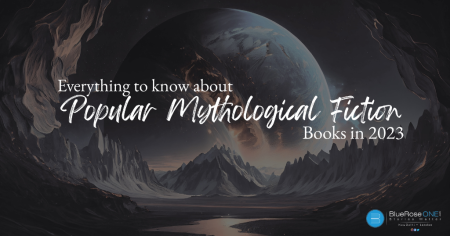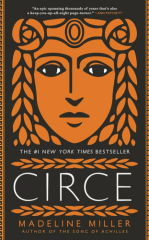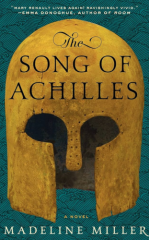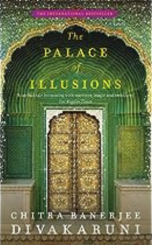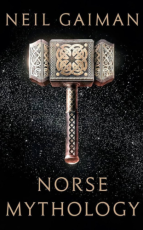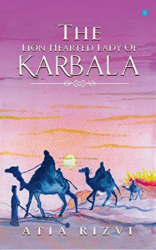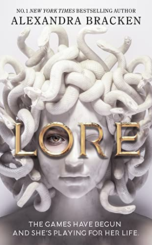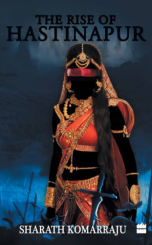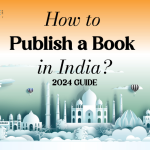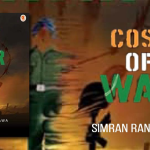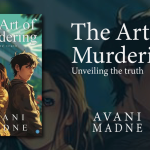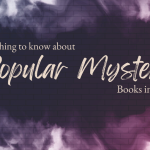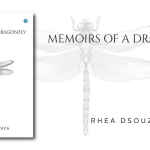The Resurgence of Mythological Fiction:
Mythological fiction, a genre rooted in ancient myths, epics, and folklore, has experienced a notable resurgence in recent years. Readers, hungry for a connection to timeless stories, have found solace and fascination in narratives that transport them to worlds where gods and mortals coexist. The genre’s resurgence is a testament to its enduring appeal, offering a bridge between the ancient and the contemporary as readers seek both entertainment and a deeper understanding of cultural heritage.
Challenges and Criticisms:
You may also like: How to Make Book Design More Appealing to the Reader
The Intersection of Mythology and Fantasy:
Mythological fiction often blurs the lines between mythology and fantasy. Authors incorporate fantastical elements, magical realms, and supernatural beings, creating a genre that appeals to both fans of ancient myths and those seeking the escapism offered by fantasy literature.
Mythological Fiction in Different Cultures:
The appeal of mythological fiction transcends cultural boundaries. Authors from diverse backgrounds draw inspiration from their own mythic traditions, enriching the genre with a global tapestry of stories. Whether rooted in Greek, Norse, Indian, or other mythologies, these narratives contribute to a rich mosaic of perspectives.
What would be the Publishing process:
- Manuscript Preparation: Embarking on the journey of manuscript preparation for your mythological fiction is akin to sculpting a masterpiece. The initial step involves a meticulous process of editing and revising. Consider enlisting the expertise of a professional editor, particularly one well-versed in the nuances of mythological fiction. This collaborative effort aims to refine your narrative, ensuring coherence, consistency, and a seamless flow that captivates readers. Formatting is the next crucial aspect. Your manuscript must align with industry standards to present a polished and professional appearance. Adherence to formatting guidelines, encompassing font styles, sizes, and spacing, is paramount. A professionally formatted manuscript not only reflects your commitment to quality but also enhances its visual appeal, increasing the likelihood of capturing the attention of potential publishers. As you traverse the realm of mythological storytelling, meticulous preparation sets the foundation for a narrative that resonates profoundly with readers and industry professionals alike.
- Research and identify publishing houses: In the expansive landscape of publishing, research becomes your compass, guiding you to the ideal harbour for your mythological opus. Delve into an exploration of publishing houses, focusing on those with a specialisation in mythological fiction or a proven track record of nurturing similar genres. This diligent investigation allows you to tailor your submissions to houses that resonate with the essence of your narrative. Familiarise yourself with the specific preferences and submission guidelines of potential publishers. Each house has its own unique ethos, and aligning your manuscript with their interests increases the likelihood of a fruitful collaboration. Research is not merely a preliminary step but a strategic manoeuvre that positions your mythological fiction for optimal visibility within the publishing landscape.
- Query Letters and Book Proposals: Crafting compelling query letters and book proposals is an art that serves as the gateway to publishers’ hearts. Your mythological fiction possesses cultural richness, narrative depth, and thematic significance—elements that should be artfully articulated in your queries. Consider these documents as the heralds of your narrative, introducing publishers to the enchanting world you’ve meticulously woven. Tailor each query to the specific publisher, showcasing your awareness of their interests and demonstrating why your mythological narrative aligns seamlessly with their catalog. The query is not merely a synopsis but a persuasive invitation, compelling publishers to embark on the transformative journey your manuscript promises. Your book proposal should be a literary manifesto, outlining the grandeur of your mythological world. Dive into the thematic currents, character intricacies, and cultural nuances that make your fiction a unique contribution to the literary tapestry. This meticulous preparation of query letters and book proposals propels your mythological fiction from the shadows of submission queues into the spotlight of publishing consideration.
- Choose the Right Literary Agent: Selecting a literary agent is a pivotal decision in the journey of bringing your mythological fiction to readers. Literary agents serve as indispensable guides, possessing a wealth of industry knowledge and connections. Look for agents with a track record of representing mythological fiction or similar genres, as their expertise will be invaluable in navigating the nuances of the publishing landscape. Agents champion your work, pitching it to publishers and negotiating terms on your behalf. Their insights into market trends, editorial preferences, and contractual intricacies can significantly enhance your chances of securing a favourable publishing deal. Establishing a symbiotic relationship with a literary agent aligns your creative vision with the practicalities of the publishing world, ensuring that your mythological narrative reaches its optimal audience.
- Self-Publishing Options: In the contemporary era, self-publishing empowers authors with greater control and accessibility. For mythological fiction writers considering this route, it’s crucial to explore reputable self-publishing platforms tailored to the genre. Platforms like Amazon Kindle Direct Publishing (KDP) provide user-friendly interfaces for authors to independently publish their works. However, self-publishing doesn’t mean compromising on professionalism. Prioritise professional editing services to refine your manuscript and ensure it meets industry standards. Additionally, invest in a compelling cover design that visually communicates the essence of your mythological tale. While self-publishing offers autonomy, meticulous attention to quality and presentation is paramount to standing out in a competitive market.
- Embrace the Digital Realm: Digital publishing opens doors to a vast and global readership for mythological fiction authors. E-books and audiobooks, in particular, provide accessibility to diverse audiences. Leveraging platforms like Amazon KDP for e-books and Audible for audiobooks allows authors to tap into the expansive digital market. Embracing the digital realm enhances the discoverability of your mythological masterpiece, reaching readers across geographical boundaries. Digital formats also cater to the preferences of modern readers, who seek flexibility in consuming content. As you venture into digital publishing, prioritise professional formatting to ensure a seamless reading or listening experience. Harnessing the capabilities of the digital realm amplifies your mythological narrative’s visibility and resonance in the evolving landscape of contemporary literature.
- Book Cover Design: The book cover serves as the visual ambassador for your mythological world, making its design a critical aspect of the publishing process. Whether collaborating with a traditional publisher’s design team or hiring an independent cover artist for self-published works, invest time and resources in creating a captivating cover. The design should not only be aesthetically pleasing but also convey the essence and tone of your mythological narrative. Elements such as colour palette, imagery, and typography play a pivotal role in attracting potential readers. A well-designed cover acts as a beckoning portal, inviting readers to delve into the enchanting realms you’ve crafted. Prioritise a cover that stands out amidst competitors while aligning with genre expectations. Remember, the book cover is often the first interaction a reader has with your mythological fiction, making a compelling and evocative design a key factor in enticing them to explore your narrative further.
- Copyright and Intellectual Property Protection: Securing copyright protection is a crucial step in safeguarding your mythological fiction as intellectual property. This legal measure provides you with exclusive rights to reproduce, distribute, and display your creative work. In the realm of mythological fiction, where original narratives and world-building are paramount, protecting your intellectual property becomes imperative. Copyright ensures that you, as the author, have control over how your work is used and prevents unauthorised reproduction or adaptation. To obtain copyright protection, register your mythological fiction with the relevant copyright office, providing a legal foundation for asserting your rights. This step not only protects your creative endeavours but also offers the potential for legal recourse in cases of infringement. As you embark on the publishing journey, prioritising copyright and intellectual property protection ensures that the unique tapestry of your mythological world remains securely woven under your authorial guardianship.
- Engage with Your Readers: Building an engaging author platform is pivotal for connecting with your audience in the realm of mythological fiction. Leverage social media platforms such as Instagram, Twitter, and Facebook to create a digital space dedicated to your mythological world. Share captivating visuals, snippets of your creative process, and behind-the-scenes anecdotes. By offering insights into your world-building and character development, you invite readers to immerse themselves deeper into your narrative. Establishing a personal website or blog adds a layer of authenticity, providing a central hub for readers to explore your mythological universe. Regularly interact with your audience, responding to comments and fostering a sense of community around your work. This engagement transforms readers into loyal fans who are not just consumers but active participants in the journey of your mythological fiction.
- Marketing and Promotion: Crafting a strategic marketing plan is essential to thrusting your mythological fiction into the literary spotlight. Social media campaigns form a powerful component, utilising visually striking graphics, engaging captions, and targeted hashtags to amplify your reach. Virtual book launches create a buzz by offering readers an immersive experience in the world you’ve created. Author interviews, whether on podcasts or literary platforms, humanise your narrative, making it more relatable to potential readers. Collaborating with influencers in the mythological or literary niche can significantly broaden your audience. Encouraging early reviews from beta readers not only boosts credibility but also generates anticipation. Leverage email newsletters to keep your audience informed about upcoming releases, events, and exclusive content. The key is to create a multi-faceted marketing strategy that taps into various channels to ensure maximum visibility and resonance for your mythological fiction.
- Distribution Channels: Choosing the right distribution channels is a strategic decision that influences the accessibility and visibility of your mythological fiction. Traditional brick-and-mortar bookstores offer a tangible presence, allowing readers to discover your book organically. Online retailers, such as Amazon, Barnes & Noble, or independent bookstores with e-commerce platforms, cater to the digital age, reaching a global audience. Opting for a combination of both ensures a comprehensive approach. Consider formats—physical copies, e-books, and audiobooks—based on reader preferences. Tailor your distribution plan to align with your target audience, ensuring that your mythological fiction is available where they are most likely to seek it. Collaborate with book clubs, libraries, and literary events to further extend your book’s reach. The goal is to strike a balance that maximises both visibility and accessibility while catering to the diverse reading preferences of your audience.
- Patience and Perseverance: The publishing journey, akin to an epic quest in mythological tales, demands patience and perseverance. Anticipation often accompanies moments of submission and waiting for responses from publishers or agents. Rejections, though disheartening, should be viewed as stepping stones towards the right opportunity rather than roadblocks. Each rejection holds valuable lessons, refining your approach and strengthening your narrative. Perseverance becomes your companion as you navigate the challenges inherent in the literary world. Embrace the ebb and flow of the journey, knowing that resilience in the face of setbacks is a hallmark of successful authors. Your mythological fiction is a creation born of dedication and passion—qualities that, when coupled with patience, pave the way for enduring success.
- Embrace feedback and adapt. Feedback, whether from readers, reviewers, or industry professionals, is a compass guiding your mythological fiction towards refinement and resonance. Embrace constructive criticism as a tool for growth, recognising that external perspectives enrich your creative process. Adaptability is a hallmark of successful authors; it allows your work to evolve, ensuring it remains relevant and impactful. Engage with reviews—both positive and constructive—acknowledging and appreciating the perspectives of your readers. Consider feedback not as a judgement of your work but as a collaborative effort to enhance its depth and appeal. Adapting your narrative based on insights garnered from the readership ensures that your mythological fiction continues to captivate and inspire. In this iterative process, your willingness to embrace feedback becomes a testament to your commitment to delivering a compelling and resonant narrative.
You may also like: The Rise of Self-Publishing and What it Means for Authors
Influential Works in Mythological Fiction:
Here’s a list of top Influential Popular Mythological Fiction Books in 2024 to Read:
Circe by Madeline Miller
Madeline Miller’s “Circe” weaves a spellbinding tale around the titular character from Greek mythology. The author’s meticulous research and imaginative storytelling bring Circe, the enchantress, to life in a narrative that explores themes of power, identity, and the complexity of relationships.
The Song of Achilles by Madeline Miller
Another masterpiece by Miller, “The Song of Achilles,” retells the legendary story of Achilles and Patroclus. Through lyrical prose and a fresh perspective, Miller breathes new life into the well-known characters, adding emotional depth and complexity to their epic tale.
The Palace of Illusions by Chitra Banerjee Divakaruni
You may also like: The Importance of Professional Editing in Self-Publishing
Norse Mythology by Neil Gaiman
Neil Gaiman’s “Norse Mythology” takes readers on a captivating journey through the myths of the Norse gods. Gaiman’s narrative skill breathes life into Odin, Thor, Loki, and other iconic figures, making the ancient tales accessible and engaging for modern audiences
The Lion-Hearted Lady of Karbala by Atia Rizvi
“The Lion-Healed Lady of Karbala” by Atia Rizvi is a profound exploration of the life and legacy of Zainab, the remarkable daughter of Fatima and Ali and granddaughter of Prophet Muhammad (PBUH). This book delves into the pivotal role she played in preserving the essence of Islam and ensuring the eternal remembrance of the martyrdom of her beloved brother, Hussain, at the Battle of Karbala. ”The Lion-Hearted Lady of Karbala” showcases Zainab’s unwavering commitment to upholding the true teachings of Islam and safeguarding the legacy of Prophet Muhammad.
Lore by Alexandra Bracken
In “Lore” by Alexandra Bracken, ancient mythology collides with the modern world in a thrilling urban fantasy setting. The story follows Lore Perseous, the last remaining descendant of a long line of legendary heroes known as the Agon. In this world, every seven years, the Greek gods descend to Earth, seeking mortal champions to participate in a deadly competition called the Agon. Lore, who has sworn off her family’s legacy after a tragedy, is pulled back into the world of gods and monsters when a childhood friend seeks her help.
The Rise Of Hastinapur by Sharath Komarraju
You may also like: Top 10 Best Biographies of All Time

